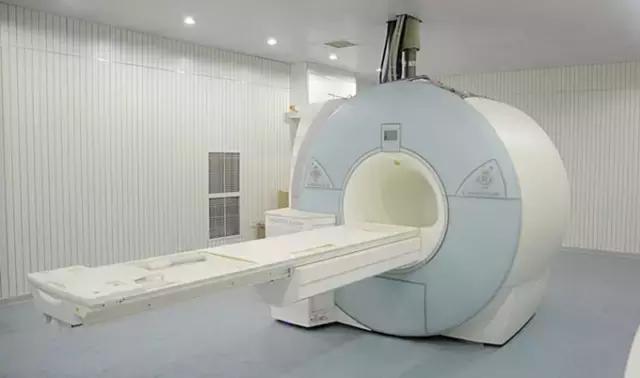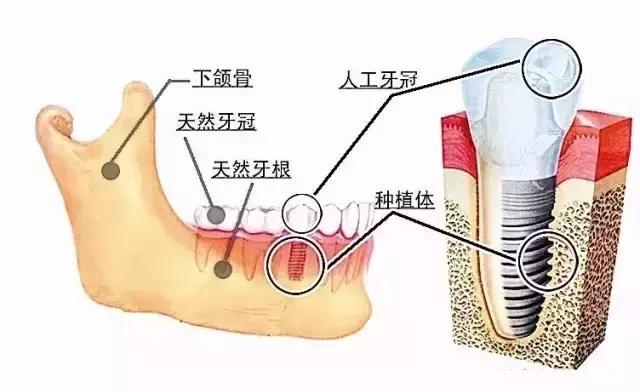Will dental implants affect "MRI"? Planting experts solve your doubts.
Dental implants as the first choice for dental restoration, in addition to the price is the most concerned, most concerned about, there are many friends come to consult implant-related questions, the more asked is: will dental implants affect MRI?


What is nuclear magnetic resonance?
Nuclear magnetic resonance imaging (MRI), which uses pulsed magnetic field imaging to record the parts of hydrogen-containing components (such as water) in tissues, can be used in all parts of the human body.

As there is a very strong magnetic field in MRI machines and MRI rooms, people with pacemakers, those with metal clips or metal stents after vascular surgery, or other people who undergo metal stent surgery are absolutely prohibited from having MRI examinations. otherwise, the movement of metal attracted by a strong magnetic field may have serious consequences.

Does dental implant have an effect on MRI?

According to Huabei oral implant experts, some formal international advanced artificial implants are made of pure titanium. Titanium is the metal with the best biocompatibility known at present, and it is a non-magnetic metal, and it will not be magnetized in a large magnetic field, so the implant itself does not have any effect on magnetic resonance examination.
The crown above the implant is likely to be affected by magnetic resonance examination. at present, the commonly used implant denture restoration materials are all-ceramic and metal porcelain. All-ceramic materials are non-metal, which does not have any effect on magnetic resonance imaging, while metal ceramic teeth have different degrees of interference to magnetic resonance imaging due to different kinds of metals.

Therefore, the editor suggests that when fixed oral restoration, priority should be given to all-ceramic restoration, and when metal crowns and bridges have to be used, priority should be given to precious metals (gold alloy, gold-platinum alloy, etc.), followed by pure titanium, followed by titanium-containing alloys. finally, cobalt-chromium and nickel-chromium alloys. Even if you choose precious metal, it is still appropriate to use individual single crowns to avoid multi-unit crown and bridge repair.
Non-precious metal fixed prosthesis in oral cavity
Do you have to remove it first when you have an MRI?
Huabei oral implant experts pointed out that in fact, it is not necessarily. Because these dental alloys will not cause harm to the body during magnetic resonance examination, but will only interfere with the imaging within a certain range around the restoration.
The metal restoration in the oral cavity is affected by the brain, neck, face, inner ear and other parts during the nuclear magnetic resonance examination. If the site we want to examine is not near the metal restoration, it will not affect the diagnosis of the disease, and there is no need to dismantle the restoration.
Proper selection of restoration materials according to their own conditions: planting doctors generally recommend that all-ceramic and precious metals are preferred, because these materials are beautiful and rarely cause adverse reactions such as allergies to the human body, and will not interfere with the diagnosis during magnetic resonance imaging. Of course, if you choose an ordinary metal, it does not have to be removed during an MRI, and the radiologist will judge according to the situation.
reminder
Friends who need dental implants should not worry too much. Implant experts say that dental implants are a very safe, comfortable, beautiful and practical dental restoration technology, and it is the greatest achievement in the field of dental restoration. It can restore most of the masticatory function, better retention, but also more comfortable, known as "the third pair of human teeth." Here, Huabei Oral cavity sincerely hopes that dental implant technology can benefit more people with missing teeth and prevent the loss of teeth from endangering your health.
- Prev

What kind of medicine is the most profitable to grow in mountainous areas? Which Chinese herbal medicines are suitable for planting in mountainous areas?
1. Astragalus mongolicus is suitable for growing in arid and rainless areas. Its main roots are deep and long, regardless of barren mountains, wastelands, Gobi, sandy banks, grasslands and poor ridges.
- Next

It earns 10000 yuan per mu in three years, Panax notoginseng is fastidious in planting, and there is bitterness behind the seven farmers.
Yunnan Wenshan specialty Panax notoginseng, Wenshan state's unique geographical location and light, heat, water, soil, gas and other conditions provide a warm bed for the growth of Panax notoginseng, so Wenshan.
Related
- Fuxing push coffee new agricultural production and marketing class: lack of small-scale processing plants
- Jujube rice field leisure farm deep ploughing Yilan for five years to create a space for organic food and play
- Nongyu Farm-A trial of organic papaya for brave women with advanced technology
- Four points for attention in the prevention and control of diseases and insect pests of edible fungi
- How to add nutrient solution to Edible Fungi
- Is there any good way to control edible fungus mites?
- Open Inoculation Technology of Edible Fungi
- Is there any clever way to use fertilizer for edible fungus in winter?
- What agents are used to kill the pathogens of edible fungi in the mushroom shed?
- Rapid drying of Edible Fungi

